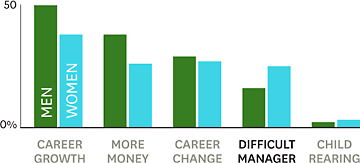本当の人種差別は雇用主ではなく消費者にあるという研究(ht @ecohis):
Decomposition of the Black-White Wage Differential in the Physician Market
Hence, a firm that has a “taste for discrimination” would not pay a worker of a different race a wage commensurate to that worker’s productivity.
雇用における人種差別は二つに区別できる。一つは雇用主が被差別人種を雇いたくないという人種差別で、これは特定の人種の給与が生産性に比して低いという形で現れる。
if consumers are unwilling to purchase goods and services produced by minorities, then minority workers would not be as valuable to all firms and minority workers would receive lower wages than majority workers as a result.
もう一つの差別は消費者が特定の人種からのサービス提供を嫌うという種類の差別だ。消費者がこの種の選好を持っているなら、雇い主にが人種に対して無差別であったとしても被差別人種の労働者を雇うことによる便益が低いため給与も低くなる。
In general, if the number of nondiscriminating employers is large relative to the number of minority workers, or if the nondiscriminating firms have constant or increasing returns to scale technologies, then minority workers may not be affected by discrimination at all.
しかし前者の雇用側の差別は、差別的な雇用主の数が比較的小さい限り給与水準へ大きな影響を与えない。非差別的な雇用主が被差別人種の労働者を雇うために競争するためだ。そういった雇用主が多ければほぼ全ての被差別人種労働者が非差別的な労働者のもとで働くことになるし、その給与も生産性に見合う水準まで競り上がる。
それに対して、後者の消費者による差別は全ての被差別人種労働者の収益性を下げる(消費者がサービス提供者の人種を選択できない限り;これは雇用主に比べて消費者で困難だ)。また消費者の人種に関する選好を直接規制・是正することは倫理面・費用面で困難だ。
Since those who are self-employed would not encounter firm discrimination, any discrimination that is experienced by self-employed workers must have originated from consumers. Salaried workers, on the other hand, may face discrimination that is both employer- and consumer-based. Based on this intuition, we make two claims.
この二つの効果を分離するために、元ペーパーでは自営の労働者と雇用されている労働者の給与を比較している。自営の場合には雇用主による差別はないからだ。
The survey contains information on a wide range of variables—such as physician specialty, board certification status, and waiting time for patients—that would enable us to control for consumer demand and worker productivity, thereby effectively isolating the effects of different types of discrimination in the physician market.
もちろん自営の人と給与を貰っている人とではそもそも同じ母集団でないため、その差を計算に入れる必要がある。ここでは若手の医者に関するデータが利用されている。個々の医師についての詳細な情報を利用するためだ。
At most, discrimination lowers the hourly wages of black physicians by 3.3%. The decompositions show that consumer discrimination accounts for all of the potential discrimination in the physician market and that the effect of firm discrimination is actually in favor of black physicians.
結果、白人と黒人との間の給与差は僅か3.3%でその殆どは消費者によるものだということが分かったそうだ。もちろんこれは医療という業界の特殊性かもしれないし、自営と給与所得者との差異のコントロールがあまりうまくいっていない可能性もあるが、直感的な結果だ。但し、雇用主の差別が給与差に影響を与えていないのは差別的な雇用主が比較的少ないというだけで、差別がないということではないことには注意する必要がある。

